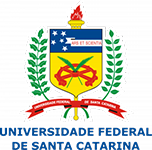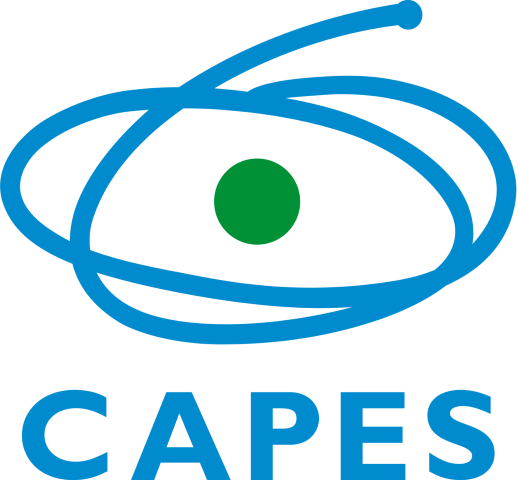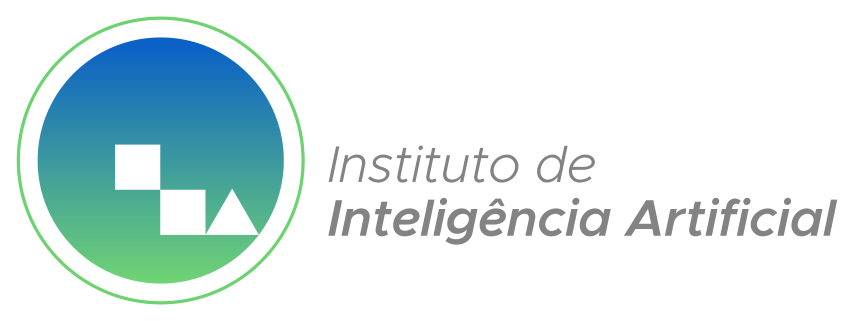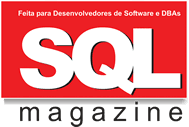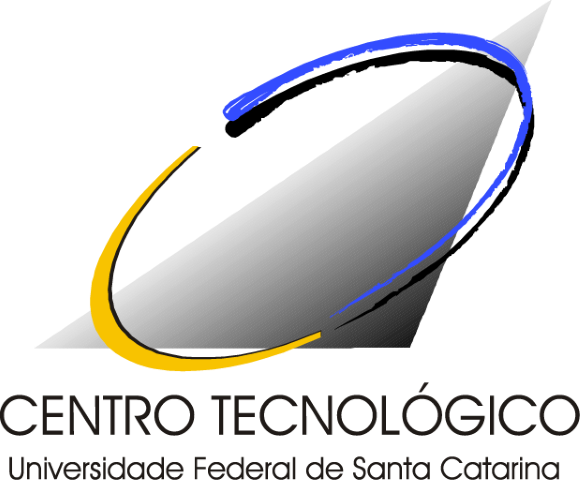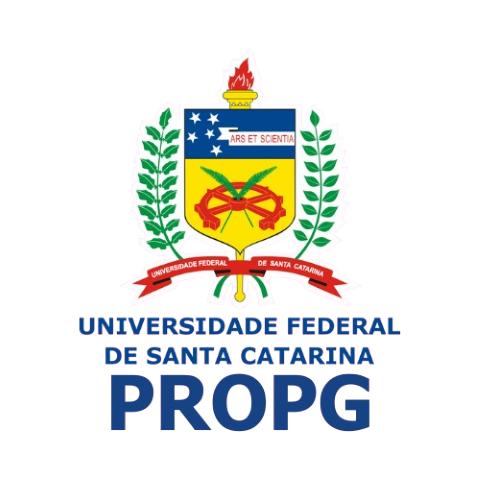Main Event
The BRAZILIAN SYMPOSIUM ON DATABASES (SBBD) is the official event on databases of the Brazilian Computer Society (SBC) and the largest venue in Latin America. It is a forum for the presentation and discussion of important and recent topics in the SBBD area, bringing together students, researchers, professionals, vendors, government, and society in general to promote the dissemination of research and innovation results.
Along with technical and demo (tools) sessions and relevant workshops, the symposium includes invited talks, tutorials, and mini-courses given by distinguished speakers from the national and international data management research community. It covers issues in data management, database and information systems, data science, data engineering, big data, and other related topics in the light of considering data as a technological cornerstone of emerging applications
For the 2024 edition, SBBD will accept full, short, and disseminated papers and JIDM regular papers for presentation. Full and short papers must be high-quality, original, and previously unpublished submissions in data management theory, technology, or practice. SBBD invites full and short papers according to the following categories.
RESEARCH: Scientific papers with contributions to the research in SBBD.
VISIONVision papers should present new problems, application domains, or methodologies likely to stimulate significant new research and discussions. Vision papers are supposed to convince the audience that the idea is valid and worth listening to without presenting completed research work and validated results.
INDUSTRIAL or APPLICATION: SBBD welcomes novel real-world applications of data management systems and experience in applying recent research advances to real-world problems. Real-world problems may arise from the Industry, Society, Government, Scientific Community, or other companies.
SBBD also welcomes submissions on interdisciplinary work if there are clear contributions to data management.
Topics of Interest
Topics of interest include, but are not limited to, the following:
- Cloud data management and blockchains
- Data and information quality
- Data annotation and provenance
- Data cleaning, information filtering, and publishing
- Data frameworks, ecosystems, and database architectures
- Data mining and analytics
- Data models and semantics
- Data privacy and security
- Data science applications/pipelines
- Data visualization, user interfaces, and database usability
- Database engines
- Database monitoring, performance, benchmarking, and tuning
- Data-centric applications
- Digital libraries and applications
- Document management and classification
- Embedded and mobile databases
- Experiments and analyses
- Graphs, networks, and semi-structured data management
- Information integration and Interoperability
- Information retrieval
- In-memory data management
- Knowledge bases, knowledge graphs, and modeling
- Machine Learning, AI, data management, and data systems
- Multidimensional and temporal databases
- NoSQL databases
- Peer-to-peer, parallel, distributed, or heterogeneous databases
- Polystore databases
- Probabilistic, fuzzy, and uncertain data management
- Profile-based or context-aware data management
- Query languages and processing
- Recommender systems
- Responsible data management and algorithmic fairness
- Schema management and design
- Self-managed and autonomic databases
- Semantic web, linked data, and ontologies
- Sensor data processing, stream databases, and IOT on data
- Social networks and crowdsourcing
- Spatiotemporal databases
- Specialized and domain-specific data management
- Storage, indexing, and physical database design
- Transaction management, concurrency control, and recovery
- Text mining and natural language processing
- Web data management
- Workflow applications and databases
Full Papers
Submissions in this category should present research results and discuss any SBBD topics of interest. There are three equally important categories of full papers: (i) Regular Research Papers, (ii) Vision Papers, and (iii) Industrial or Application Papers..
Complete articles must be written in Portuguese or English and not exceed 12 pages, according to the SBC template. These articles must not have been submitted simultaneously to any other forum (conference or magazine) nor have they already been published in another vehicle. Acceptance of an article implies that at least one person of its authorship registers for the symposium to present it. Works must be submitted within the deadline via the JEMS website.
Submitted articles will go through a double-blind review processdouble-blind, where authorship identities are hidden from those who review the articles and vice versa (those who write do not know who reviews). Articles will be reviewed based on originality, relevance, technical soundness and clarity of presentation. Industrial or application articles will be reviewed based on context and innovation potential.
Full SBBD articles will have a two-round review process for articles considered borderline, where those who wrote them will be able to see a version of the revisions and write a response (rebuttal) to defend their article in relation to the comments received. In this response, you can propose making some small changes to correct problems in the article to generate a final (camera-ready) version.
Questions regarding the submission of the FULL paper should be directed to eogasawara@ieee.org.
Important dates:
- Abstracts due:
May 6, 2024– May 27, 2024 - Submissions due:
May 13, 2024– June 3, 2024 - Notification:
June 17, 2024– July 10, 2024 - Rebuttal Submission: July 16, 2024
- Final Notification: July 23, 2024
- FInal Version: Aug 12, 2024
Submissions
Full Papers – Extra Submission in Support of Authors from Rio Grande do Sul
In these challenging times, our hearts are with the people of Rio Grande do Sul, who are facing an unprecedented climatic tragedy. We at SBBD stand in solidarity with the community, understanding the gravity of this moment. To support our fellow researchers and authors from Rio Grande do Sul during this difficult period, we are extending the submission deadlines for full paper authors from Rio Grande do Sul. Our thoughts are with everyone affected, and we hope this small gesture can help alleviate some of the pressures faced by those impacted.
Questions regarding the submission for this call should be directed to eogasawara@ieee.org.
Important dates:
- Abstracts due: July 1, 2024
- Submissions due: July 8, 2024
- Notification: Aug 8, 2024
- Rebuttal Submission: Aug 15, 2024
- Final Notification: Aug 19, 2024
- Final Version: Sep 2, 2024
Submissions
Short Papers
Short papers should present initial results or ongoing work on any SBBD topics of interest.
Similar to full papers, papers may be (i) regular research papers, (ii) vision papers, or (iii) industrial or application papers..
Short SBBD articles must be written in Portuguese or English, as required. SBC template. Short articles submitted to SBBD must not have been submitted simultaneously to any other forum (conference or magazine) nor have they already been published elsewhere. Acceptance of an article implies that at least one person of its authorship registers for the symposium to present it. Works must be submitted within the deadline via the JEMS website.
Traditionally, short SBBD articles have a total of six pages, which, in some cases, considering the SBC article model, may leave little space left to describe the idea in more detail, even in the case of articles that present initial results or work in progress. For the 2024 edition, we have something new: short articles may have an extra page reserved for references. In other words, authors will be able to write their articles on six pages and the seventh page must contain exclusively bibliographic references In this process of constructing references to be cited, we recommend that authors seek to contextualize their work in relation to works published in previous editions of the event, if relevant.
Submitted articles will go through a double-blind review process, where the authorship identities are hidden from those who review the articles and vice versa (those who write do not know who reviews them). Articles will be reviewed based on originality, relevance, technical soundness and clarity of presentation. Industrial or application articles will be reviewed based on context and innovation potential.
Questions regarding the submission of the SHORT paper should be directed to cesp@dsc.ufcg.edu.br.
Important dates:
- Abstracts due:
June 17, 2024– July 12, 2024 - Submissions due:
June 24, 2024– July 12, 2024 - Notification: Aug 19, 2024
- Rebuttal Camera-ready: 26 de Agosto de 2024
Submissions
General Guide to Writing Submissions
Considering the topics of interest to SBBD (individually or together), people submitting submissions to the symposium must follow these recommendations:
- The papers must highlight the context of the reported research.
- Deve-se indicar os tópicos de interesse do SBBD 2024 cobertos pelo artigo.
- In the introduction, highlight the motivation for the work, the research problem, the general and specific objectives, the contribution, and its scientific originality, presenting the justification and relevance of the work.
- SBBD papers must position the work concerning related works published in the specialized literature, showing the need for a new approach, the improvement of an existing one, or even the application of data management in real problems. Some suggestions of journals and scientific events in the area that can serve as a basis for the research are (non-exhaustive list) SBBD, JIDM, KDMile, VLDB, SIGMOD, EDBT, ICDE, CIDR, Journal of Information Systems, Decision Support Systems, Journal of Information Sciences.
- SBBD articles must clearly describe the scientific methodology used and present the analysis or discussion of the results, highlighting the contributions of research and innovation and, for a given area of application, positioning it in relation to other works in the area. The results must be described objectively, relating them to the problem and research objectives. It is also expected to point out the limitations of the research and future work.
- Please review the text according to the language used and the formatting. The text must be carefully reviewed concerning its wording and must be clear, objective, and contain no language errors. Format your paper according to the SBC paper template, and review citation and reference formats. Figures and tables must be legible.
- As for the review phase, full and short articles submitted to SBBD 2024 will go through a “double-blind” review process. Therefore, to guarantee the anonymity of authorship, the following must be at least done: (i) the names and affiliations of the authors must not appear on the title page or anywhere else in the article; (ii) self-references should be limited only to articles that are relevant to those reviewing the submitted article, and the third person should be used to refer to work that the authors have done previously, e.g. replacing any phrases such as “how we showed it before” with “…it was shown before [Author 2020]”; (iii) when explicit self-citation is necessary, the list of references must be hidden: ‘[Author 2007] Details omitted for double-blind review.’; and (iv) funding sources, members of research groups or other colleagues or collaborators should not be mentioned anywhere in the article.
** We suggest all full papers make their code, data, scripts, and notebooks available if possible. Although it is not mandatory for acceptance, providing this extra material can help reviewers evaluate your work more thoroughly.
Chairs:
SBBD 2024 Program Committee Chair
- Eduardo Ogasawara (CEFET/RJ)
SBBD 2024 Short Papers Program Committee Chair
- Carlos Eduardo Pires (UFCG)
SBBD 2024 Local Chairs
- Carina Dorneles (UFSC)
- Ronaldo Mello (UFSC)
SBBD 2024 Proceedings Coordinator
- Humberto Rezende (UFU)
Comitê Gestor Brasileiro de Bancos de Dados (2023-2024)
- Daniel Kaster (UEL) – Coordenador
- Carlos Eduardo Pires (UFCG)
- Carmem Hara (UFPR)
- Damires Souza (IFPB)
- Daniel de Oliveira (UFF)
- Eduardo Ogasawara (CEFET/RJ)
- José Antonio Macedo (UFC)
- Mirella Moro (UFMG)
Comitê de Programa do SBBD 2024 – Full Papers
- Agma Traina – Universidade de São Paulo (ICMC-USP)
- Alessandreia Oliveira – Universidade Federal de Juiz de Fora (UFJF)
- Alex Borges Vieira – Universidade Federal de Juiz de Fora (UFJF)
- Alex Sandro da Cunha Rêgo – Instituto Federal da Paraíba (IFPB)
- Altigran Soares da Silva – Universidade Federal do Amazonas (UFAM)
- Ana Carolina Salgado – Universidade Federal de Pernambuco (UFPE)
- André Santanchè – Universidade Estadual de Campinas (UNICAMP)
- Andrêza Leite de Alencar – Universidade Federal Rural de Pernambuco (UFRPE)
- Angelo Brayner – Universidade Federal do Ceará (UFC)
- Caetano Traina Júnior – Universidade de São Paulo (ICMC-USP)
- Carina F. Dorneles – Universidade Federal de Santa Catarina (UFSC)
- Carlos Eduardo Santos Pires – Universidade Federal de Campina Grande (UFCG)
- Carlos Eduardo Mello – Universidade Federal do Estado do Rio de Janeiro (UNIRIO)
- Carmem Hara – Universidade Federal do Paraná (UFPR)
- Celso Hirata – Instituto Tecnológico de Aeronáutica (ITA)
- Chang Ge – University of Minnesota
- Clodoveu Davis – Universidade Federal de Minas Gerais (UFMG)
- Cristina Aguiar – Universidade de São Paulo (USP)
- Damires Souza – Instituto Federal da Paraíba (IFPB)
- Daniel de Oliveira – Universidade Federal Fluminense (UFF)
- Daniel Kaster – Universidade Estadual de Londrina (UEL)
- Daniela Barreiro Claro – Universidade Federal da Bahia (UFBA)
- Denio Duarte – Universidade Federal da Froteira Sul (UFFS)
- Diego Carvalho – Centro Federal de Educação Tecnológica Celso Suckow da Fonseca (CEFET/RJ)
- Dimas Cassimiro Nascimento – Universidade Federal do Agreste de Pernambuco (UFAPE)
- Eduardo Cunha de Almeida – Universidade Federal do Paraná (UFPR)
- Eduardo Bezerra – Centro Federal de Educação Tecnológica Celso Suckow da Fonseca (CEFET/RJ)
- Eduardo Ogasawara – Centro Federal de Educação Tecnológica Celso Suckow da Fonseca (CEFET/RJ)
- Eduardo H. M.Pena – Universidade Tecnológica Federal do Paraná (UTFPR)
- Elaine Sousa – Universidade de São Paulo (ICMC-USP)
- Fabio Porto – Laboratório Nacional de Computação Científica (LNCC)
- Felipe Domingos da Cunha – Pontifícia Universidade Católica de Minas Gerais (PUC-Minas)
- Gabriella Costa – Centro Federal de Educação Tecnológica de Minas Gerais (CEFET/MG)
- Genoveva Vargas-Solar – French Council on Scientific Research
- Geraldo Xexéo – Universidade Federal do Rio de Janeiro (COPPE/UFRJ)
- Gustavo Guedes – Centro Federal de Educação Tecnológica Celso Suckow da Fonseca (CEFET/RJ)
- Humberto Razente – Universidade Federal de Uberlândia (UFU)
- Javam Machado – Universidade Federal do Ceará (UFC)
- João Eduardo Ferreira – Universidade de São Paulo (IME/USP)
- José Maria Monteiro – Universidade Federal do Ceará (UFC)
- José Palazzo Moreira de Oliveira – Universidade Federal do Rio Grande do Sul (UFRGS)
- José Antonio Macêdo – Universidade Federal do Ceará (UFC)
- Julio Dos Reis – Universidade Estadual de Campinas (UNICAMP)
- Karin Becker – Universidade Federal do Rio Grande do Sul (UFRGS)
- Kelly Braghetto – Universidade de São Paulo (IME/USP)
- Khalid Belhajjame – Université Paris Dauphine
- Leonardo Andrade Ribeiro – Universidade Federal de Goiás (UFG)
- Luiz Celso Gomes Jr – Universidade Federal Tecnológica do Paraná (UTFPR)
- Marcelo Iury S . Oliveira – Universidade Federal de Pernambuco (UFPE)
- Marco Antonio Casanova – Pontifícia Universidade Católica do Rio de Janeiro (PUC-Rio)
- Marcos Bedo – Universidade Federal Fluminense (UFF)
- Marcos Gonçalves – Universidade Federal de Minas Gerais (UFMG)
- Maria Camila Nardini Barioni – Universidade Federal de Uberlândia (UFU)
- Maria Claudia Cavalcanti – Instituto Militar de Engenharia (IME)
- Maristela Holanda – Universidade de Brasília (UNB)
- Mariza Ferro – Universidade Federal Fluminense (UFF)
- Marta Mattoso – Universidade Federal do Rio de Janeiro (COPPE/UFRJ)
- Michele Brandão – Instituto Federal de Minas Gerais (IFMG)
- Mirella Moro – Universidade Federal de Minas Gerais (UFMG)
- Mirian Halfeld-Ferrari – Université d’Orleans
- Nadia Kozievitch – Universidade Federal Tecnológica do Paraná (UTFPR)
- Pedro Eugenio Rocha Pedreira – Facebook Inc.
- Rafaelli Coutinho – Centro Federal de Educação Tecnológica Celso Suckow da Fonseca (CEFET/RJ)
- Rebecca Salles – INRIA
- Regina Braga – Universidade Federal de Juiz de Fora (UFJF)
- Renan Souza – Oak Ridge National Laboratory
- Renata Galante – Universidade Federal do Rio Grande do Sul (UFRGS)
- Renato Fileto – Universidade Federal de Santa Catarina (UFSC)
- Ricardo Torres – Wageningen University & Research
- Robson Fidalgo – Universidade Federal de Pernambuco (UFPE)
- Ronaldo Goldschmidt – Instituto Militar de Engenharia (IME)
- Ronaldo Mello – Universidade Federal de Santa Catarina (UFSC)
- Sergio Lifschitz – Pontifícia Universidade Católica do Rio de Janeiro (PUC-Rio)
- Simone Dominico – Universidade Federal do Paraná (UFPR)
- Thiago Moura – Instituto Federal da Paraíba (IFPB)
- Tiago de Melo – Universidade do Estado do Amazonas (UEA)
- Ticiana Linhares Coelho da Silva – Controladoria-Geral da União (CGU), Universidade Federal do Ceará (UFC)
- Valéria C. Times – Universidade Federal de Pernambuco (UFPE)
- Vanessa Braganholo – Universidade Federal Fluminense (UFF)
- Vania Vidal – Universidade Federal do Ceará (UFC)
- Victor Aguiar Evangelista de Farias – Universidade Federal do Ceará (UFC)
- Wagner Meira Jr. – Universidade Federal de Minas Gerais (UFMG)
- Zoubida Kedad – Université de Versailles Paris Saclay
Comitê de Programa do SBBD 2024 – Short Papers
- Altigran Soares da Silva – Universidade Federal do Amazonas
- Ana Carolina Almeida – Universidade do Estado do Rio de Janeiro (UERJ)
- Anderson Chaves Carniel – Huawei Technologies R&D (UK) Ltd
- Andreza Leite de Alencar – Universidade Federal Rural de Pernambuco
- Carina F. Dorneles – Universidade Federal de Santa Catarina
- Carmem Hara – Universidade Federal do Paraná
- Claudio Campelo – Universidade Federal de Campina Grande (UFCG)
- Damires Souza – Instituto Federal da Paraíba (IFPB)
- Daniel de Oliveira – Universidade Federal Fluminense
- Daniel Kaster – UEL – Universidade Estadual de Londrina
- Demetrio Mestre – Universidade Estadual da Paraíba (UEPB)
- Denio Duarte – Universidade Federal da Fronteira Sul
- Edimar Manica – Instituto Federal do Rio Grande do Sul (IFRS)
- Eduardo Ogasawara – Centro Federal de Educação Tecnológica Celso Suckow da Fonseca (CEFET/RJ)
- Eduardo H. M. Pena – Universidade Tecnológica Federal do Paraná (UTFPR)
- Elaine Sousa – Universidade de São Paulo (ICMC-USP)
- Elvismary Molina de Armas – PUC-Rio
- Fabio Lobato – Universidade Federal do Oeste Pará
- Fabio Porto – Laboratorio Nacional de Computacao Cientifica
- Gabrielle Karine Canalle – Cesar School
- Humberto Razente – Universidade Federal de Uberlandia
- José Maria Monteiro – Universidade Federal do Ceará – UFC
- Karin Becker – UFRGS
- Kelly Braghetto – IME/USP
- Lucio Fernandes Dutra Santos – IFNMG
- Luiz Celso Gomes Jr – UTFPR
- Luiz Olmes Carvalho – Universidade Federal de Itajubá
- Luiz Manoel Rocha Gadelha Júnior – Laboratorio Nacional de Computacao Cientifica
- Marcelo da Silva Reis – UNICAMP
- Marcelo Iury S . Oliveira – Universidade Federal Rural de Pernambuco
- Marcos Arrais – Pontifícia Universidade Católica de Minas Gerais
- Marcos Bedo – Universidade Federal Fluminense
- Maria Camila Nardini Barioni – Universidade Federal de Uberlandia
- Maristela Holanda – Universidade de Brasília
- Michele Brandão – IFMG
- Mirela Cazzolato – University of São Paulo
- Rafael Pereira de Oliveira – Aditum
- Rafaelli Coutinho – Centro Federal de Educação Tecnológica Celso Suckow da Fonseca (CEFET/RJ)
- Raqueline Penteado – Universidade Estadual de Maringá
- Rebecca Salles – INRIA
- Renan Souza – Oak Ridge National Laboratory
- Renata Galante – UFRGS
- Renato Marroquin – Oracle Inc
- Ricardo Oliveira – Universidade Estadual da Paraíba (UEPB)
- Rocio Zorrilla – Laboratorio Nacional de Computacao Cientifica
- Rogerio Luis Costa – Politecnico de Leiria
- Ronaldo Mello – Universidade Federal de Santa Catarina
- Sergio Lifschitz – PUC-Rio
- Sergio Mergen – UFSM
- Tarlis Tortelli Portela – Instituto Federal do Paraná
- Thiago Nóbrega – Universidade Federal de Campina Grande
- Thiago Henrique Silva – Universidade Tecnológica Federal do Paraná
- Tiago Brasileiro Araújo – Instituto Federal da Paraíba (IFPB)
- Tiago França – UFRRJ
- Valéria C. Times – UFPE – Universidade Federal de Pernambuco
- Vanessa Braganholo – Universidade Federal Fluminense (UFF)
- Victor de Almeida – Petrobras
